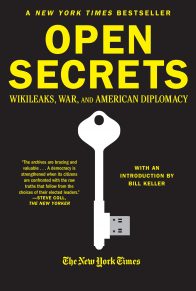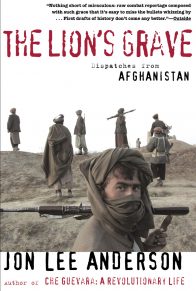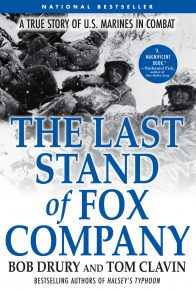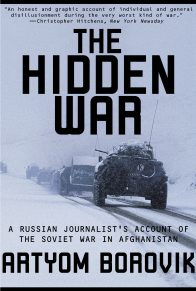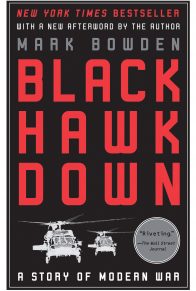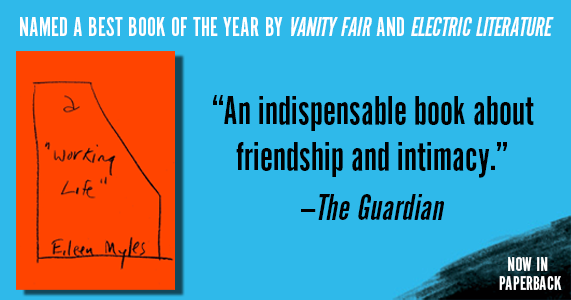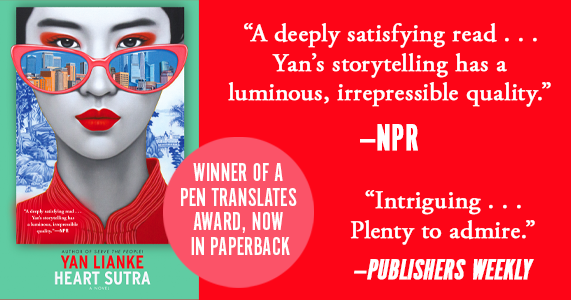The day, like most of my days in Iraq, had got off to a bad start. I awoke that morning, as usual, shivering violently and aching from another night in the Humvee. Waking up, of course, shouldn’t be a difficult or traumatic process. For the first twenty-seven years of my life, I had done it every day without even thinking. Open eyes. Yawn. Scratch balls. Look up at ceiling. Climb out of bed. Waking up in a Humvee, however, on the front lines of an invasion, is different. The first thing you notice is the contortion necessary to sleep inside the vehicle: the head dangles inches from the bare metal floor; the right leg is to be found somewhere behind the left ear. The spine feels as though it has been splintered like a cocktail stick. If the war doesn’t kill you, sleeping in the Humvee might.
Look what happened to David Bloom, the newsman from NBC: dead at thirty-nine from ‘deep vein thrombosis’–aka Economy Class Syndrome–after spending one too many nights folded inside his “Bloom-mobile.”
Then comes the mental replay of the night before–the hollers of “Lightning! Lightning!”; the absurd 3:00 a.m. fumble for the gas mask, Wellington boots, and rubber gloves; the casualty reports over the radio. And then you remember the almost hallucinatory dreams: corny, sepia-tinted images of parents, aunts, uncles, and grandparents. With that comes a gutful of guilt–at what you’re doing to the little boy they spent years nurturing. And, of course, what you’re doing to them, as they try to hold down undigested food every time they switch on the television. Oh yes, the battlefield dreams are best forgotten. Quickly.
From the outside, the gap-toothed Humvee looked as though it belonged on Sunset Strip: an oversized pleasure wagon with a camouflage paint gimmick and room in the back for a hot tub and PlayStation. Inside, however, the vehicle was jammed with radio equipment, ration packs, and a large circular footplate for the machine gunner, an earnest and aging first sergeant called Frank Hustler, who could have been a P.E. teacher in a different life. His desert boots danced to the rhythm of his paranoia somewhere next to my right hip. The gun on the roof was a .50-caliber–the kind they used in B-17 bombers during World War II. A single shot to the abdomen would rip you in half like a Christmas cracker.
In front of me sat the young Irish-American driver, “Fightin Dan” Murphy, and the half-Trinidadian captain of our unit, Rick Rogers, known to everyone but his mother as “Buck.” Directly behind my head were two filthy olive drab Iraqi Republican Guard uniforms and a sloppily maintained Kalashnikov, all confiscated during a violent, terrifying house raid outside al-Nasiriyah. The Humvee’s narrow seats, stuffed with cheap foam and covered with ripped, muddy canvas, were an afterthought. After two weeks, my buttocks felt badly bruised.
At one point I could have sworn they had started to bleed.
“Holy shit, look at the size of this scorpion!”
This was Murphy, a few nights earlier. He had just discovered the downside to sleeping on the desert floor: It glistened and squirmed with an encyclopedia’s worth of creepy-crawlies. The Marine, who was barely old enough to buy alcohol and spoke with a profane Irish drawl, stared with incredulity at the creature that had just disturbed what passed for sleep in an Iraqi kill zone.
He jabbed at the grumpy arachnid with his rifle.
“Cap’n, did you see that? That motherfucker could have crawled into my sleeping bag. It coulda crawled up my ass!”
Buck was lying on the Humvee’s hood, staring at the gleaming constellation above. The distant thuds of bombs being dropped on Republican Guard positions echoed through the infinity of mud and sand.
“Sleep on top of the vehicle, Murphy,” he said, impatiently. “There ain’t nothin” gonna crawl up your ass up there.”
“Where’s the media dude?” asked Murphy.
“In the back. First sarge is in the front. Sleep on the roof.”
From the back of the Humvee, I could hear tobacco being spat, a sleeping bag being unzipped, and a short, tightly wound Marine scaling the side of the Humvee. With a clatter, Murphy pulled himself onto the Humvee’s roof. Somewhere, another bomb went off and more Iraqis died, horribly.
“Some fuckin” stars,” said Murphy.
“Like being on vacation,” muttered Buck.
In front of me, I heard Hustler’s chemical suit rustle. “Personally, I’m thinkin’ of buying myself an Iraqi retirement home,” he declared. “Either that, or I’m gonna open the first goddamn Starbucks in Baghdad.”
There was, of course, another downside to sleeping on the ground: The risk of making an unlucky roll onto a land mine–probably intended for the Iranians, back when the Americans were on the Iraqis’ side. Getting my legs blown off, I thought, would really interfere with my morning schedule. And it would ruin the goose-down sleeping bag I had bought in Beverly Hills–in the days I was supposed to be writing about celebrity parties and film premieres.
Not that my morning schedule was anything to look forward to. This particular morning, like most other mornings in Iraq, my first task was to dig a coffin-sized “foxhole” in the baked mud of the marshlands, the endless no-man’s-land where the Euphrates and Tigris Rivers meet.
In theory, if you jump into a foxhole during incoming fire, your chance of survival increases by 80 percent. It was this statistic, rather than any desire for hard labor, that made me dig foxholes whenever we moved position. But for anyone who has studied the theory carefully, the foxhole, rather like the illuminated emergency exit in a Boeing 747, is hard to take seriously. For a start, unless you’re in it when the mortar or missile hits, it’s probably too late. And then I remembered what the instructor from the SAS–a squat Northerner with cruel eyes and a mechanical handshake–had told me back in the journalists’ training camp: “Even if yer in yer foxhole,” he said with a smirk and a hint of silver-capped enamel, “it’ll protect you only if the shrapnel from the mortar explodes upward.” He raised his eyes to the ceiling. “But some mortars are designed to explode downward.” He frowned. “That’s when yer foxhole becomes pointless.” It also becomes pointless, of course, if the mortar that explodes in your camp contains a vial of smallpox, or a canister of poison gas.
If Frommer’s ever gets around to publishing a guide to Iraq, the entry on the marshlands will be brief. They are, after all, an apocalyptically bleak part of a country that’s lacking in charm to begin with. After the first Gulf War, Saddam drained the marshes and sent his henchmen on a murderous purge of the Ma’dan, or marsh Arabs, who had lived there for five thousand years. The mustachioed madman considered the peaceful Ma’dan a threat to his Ba’ath Party.
Within less than a decade, the Ma’dan were virtually wiped out, and their former home became a wasteland of dried mud banks, deserted tank trenches, and the occasional lonely, malnourished goat. The few surviving Ma’dan look like apparitions, bones jutting out of their sackcloth robes. We had thrown a few “humanitarian relief” packages to them as we first rolled into the area. The irony, of course, is that the ground the Ma’dan owned had enough oil trapped underneath it to buy Microsoft, leaving enough change for General Electric. Thanks to the post–Gulf War I sanctions, however, the Iraqi leader couldn’t turn a profit from his genocide.
On this grim morning, as I started to dig my foxhole, all I cared about was that the top layer of mud had the consistency of cake batter, while deeper down it became as hard as frozen toffee. With mud and sunscreen running down my forehead and into my eyes, I hacked away at the earth for what seemed like a Sisyphean eternity. It was an excruciating exercise regime: The marshlands had been freezing cold that night, hardening the tightly packed mud. Iraq has a reputation for being hot, but as the future Frommer’s guide may eventually inform more peaceful visitors, the cold is just as extreme: In fact, one member of the SAS died from hypothermia during the infamously botched Bravo Two Zero mission into Iraq in 1991.
As the sun rose, the mud still felt like masonry, but the temperature climbed stoically toward one hundred degrees, forcing me to strip off the layers of trendy North Face climbing gear I had stuffed inside my ripped chemical suit. I didn’t dare take off the gas mask strapped to my waist, however, or the sealed canteen of drinking water on my hip. My heavy blue flak jacket, with the word PRESS inscribed onto it in large reflective white lettering, also stayed on.
Buck, Murphy, and Hustler would find it amusing to walk up to me, poke me in the chest, and say, “I’m pressing!” They also enjoyed pointing out that my jacket was possibly the only blue thing anywhere in the southern Iraqi desert–if not the entire country–and was therefore guaranteed to draw fire from even the most junior and inexperienced Iraqi marksman. I could even make the blue target area bigger by unclipping and lowering a special plate of upholstered Kevlar to protect my balls. Now that really made the Marines’ day.
At least, they joked, I would be able to find out firsthand whether the jacket lived up to its promise of being able to stop a round from an AK-47. None of the Marines, I noticed, stood next to me for very long.
Time passed. I kept hacking at the mud.
I noticed there was an unusually fierce wind, which blew up the dried mud from the marsh banks, giving the world a surreal orange-brown tint. Just what I needed, I thought: the world getting more surreal.
As I dug my foxhole, I recalled the gross act of cowardice that had landed me in Iraq in the first place. I was fast asleep in Los Angeles–where I had been posted by The Times to write lighthearted and quirky stories about the West Coast–when the floor underneath my bed began buzzing and shaking. It was the phone. On the other end of the line was Martin Fletcher, The Times‘s foreign news editor and my boss. My bedside alarm clock read 6.30 a.m. In London, however, it was 2.30 p.m. Fletcher had already been up for at least eight hours and, worse, had just had lunch. Fletcher often had ideas over lunch. And they usually meant work for me.
“Ayres, do you want to go to war?” Fletcher asked cheerfully, as Alana, my girlfriend, lay fast asleep beside me, oblivious that the conversation I was having was about to change everything, forever.
I tried to summon blood to the brain cells that dealt with Fletcher’s often baffling requests. The hangover from the previous night, however, and the chronic lack of espresso, were working against me. “Yes!” I blurted. “Love to!” My brain, unable to process the incoming data, had automatically called up a standard response, like an Internet browser calling up a home page from its memory when it’s not online. Respond in the positive, my brain remembered. Be enthusiastic. Foreign correspondents are supposed to love wars, after all. What kind of journalist would prefer to lie by the pool in West Hollywood, drinking cappuccinos from Urth Caf” and writing about post-Oscar parties with Donald Trump and Elton John? And didn’t Homer write in The Iliad that every man should experience war, because war, like love, is one of the central mysteries of life? Or was that Hemingway? Hang on, didn’t Hemingway say that in war “you’ll die like a dog for no good reason” . . . ?
Now I was awake. Fletcher continued. “The Americans seem to have some kind of scheme . . . Make sure you get on it, Ayres. Good.” I reflexively made another positive noise and Fletcher hung up. Shit, I thought to myself, and went back to sleep. I dreamt of Sunset Boulevard, the Hollywood sign, Mulholland Drive. When I awoke again, I realized what I had done. Was Fletcher serious? Probably not, I reasoned. Why would he send a twenty-seven–year-old Hollywood correspondent with no combat experience to war? The very idea was absurd. No doubt I would end up writing a “color piece” from Qatar about an army chef preparing scrambled eggs for the troops. That would be my contribution to the paper’s war effort. Just in case Fletcher was serious, however, I came up with an ingenious escape plan–it would make me look enthusiastic, heroic even, and yet would also keep me far away from any live bullets. I would get assigned to an aircraft carrier. I didn’t care what Homer or Hemingway said. No one ever died like a dog for no good reason on an American aircraft carrier.
It was hard to concentrate on the digging, out there in the Iraqi marshlands. Even though I had been at war for nearly a fortnight, I still hadn’t become acclimatized to the man-made thunder sending pressure waves through the mud banks every few minutes. The tremors were so violent they would surely have registered on the Richter scale. I was, however, beginning to learn the difference between them: The distant rumbles were bombs dropped by F-15 fighter jets; the face-slapping pops were rounds from our own unit’s 155mm howitzer cannons; the pfut-pfut-pfuts, meanwhile, were incoming Iraqi mortars. Of all the noises, that one was the worst.
Naturally, I tried to react with a mixture of machismo and nonchalance. It didn’t work. Nearly every blast made me drop my shovel and involuntarily scream, “What the fuck was that?” The Marines would turn to look at me, squint into the weak, dusty sun, and explain: ‘someone’s gettin” some.” Then they would shake their heads, possibly out of frustration with the ‘media dude,” or more likely out of awe for the sheer force of the firepower around them.
“Boy, would I not like to be gettin” some of that,” they would add thoughtfully, with another head shake.
“That shit would suck.”
It was hard not to agree. “Yes,” I would offer, “that would certainly be unpleasant.” I mentally pictured the bloodbath going on a few miles away, as rounds the size of gasoline cans from our howitzers whooshed overhead and separated into scores of mini-bomblets, raining down pure misery on those below. “Good work, Marines,” I had heard a major say the day before. “The tanks up front had nothing to fight but body parts.” It was no surprise that the Marines to whom I had been assigned proudly called themselves the Long Distance Death Dealers. They were as efficient as factory workers; a disassembly line, churning out Iraqi body parts.
There’s no doubt about it: I should have just said no to Fletcher. But my competitive instincts got the better of me. In other words, I didn’t have the guts. Fletcher is an old-school Times man. Tall and marathon-runner lean, with tousled dark hair, a billion-gigabyte brain, and inscrutable smile, he is an English foreign correspondent from central casting. Although he is technically an executive, he turns up to the office on a bicycle and never wears a tie. He is, needless to say, irritatingly dashing for a man entering his fifth decade with a wife and three teenage children (“Fletcher’s yummy,” a female colleague once confided in me). His career, meanwhile, has been relentlessly brilliant: Educated in Edinburgh and Pennsylvania, he spent the best part of a decade as The Times‘s Washington bureau chief and American editor–the journalistic equivalent of being the lead singer of the Rolling Stones–before reporting from Belfast and publishing a best-seller about his U.S. travels called Almost Heaven. It’s no secret in London that Fletcher hates being wedged behind a desk. As he towers over his computer terminal, he makes it look like some trivial toy. Fletcher belongs out in the field. Preferably an exotic and dangerous field.
Fletcher could barely suppress the envy in his voice when he sent me on assignments in far-flung corners of the U.S. “Go! Enjoy!” he would cry. “It’ll be great fun! And think of us poor souls back here on the desk . . . Okay? Good.” Fletcher ended almost all his sentences with “Good,” delivered so quickly and sharply the double-o became almost redundant. It was as though he was so busy he had to abbreviate his speech, like a hastily written e-mail: “Gd.” I desperately wanted Fletcher to respect me. And if I turned Fletcher down, I thought, he would no longer consider me a “proper” foreign correspondent and send someone else–making a mental note to recall me from Los Angeles as soon as possible.
So I had only myself to blame for the fact that I was digging harder than a convict in a chain gang, wearing a suffocating camouflage chemical suit, gas mask, water canteen, and heavy blue flak jacket that was probably visible from space. Every few minutes I would reflexively check to see if my gas mask was still in place and, more important, if the holster still contained the self-injectable ten-milligram canister of Diazepam that had been given to me in Kuwait. The Diazepam was to give me a happy death in the event of an Iraqi chemical attack.
“The time to use it’s if you start dancin” the funky chicken,” I had been told with a giggle by the butch female army instructor back in Kuwait City. She did a jerky dance routine to illustrate her point. The “funky chicken,” I assumed, would be my final, violent convulsions as I clawed at my eyeballs while the blister agent inside my lungs choked me with blood and vomit. On several occasions since entering Iraq, I had been tempted to self-administer the Diazepam preemptively.
Eventually, with the sun near the top of its upward arc, I had created a hole the size of a small bathtub. Then I smoked a Marlboro Light, one of my last before the carton of two hundred that I had impulsively bought in Kuwait City ran out. Every time I inhaled I sucked up airborne mud, which at this point was running out of my nose and making my eyes water. The gusts of wind were getting more powerful by the minute, and the orange-brown tint caused by the mud was deepening, making it hard to see. I wondered, not for the first time, if the foxhole would become my grave; or if we would move positions again, forcing me to burn another three thousand calories digging a new one. Our unit, which called itself Katana, after the samurai sword–because it had been stationed on Okinawa Island in Japan before moving to Iraq–had never stayed in any one position for more than a few hours since crossing the border into Iraq. As I leaned on my shovel and smoked, I saw Buck approaching me through the mudstorm. My day might have started badly, but it was about to get a lot worse.
Rick “Buck” Rogers was thirty-one, black, and athletic, with family in Trinidad and Britain. I liked Buck a lot–he wore a hunting knife strapped to his flak jacket and talked about English football and cricket in a singsong staccato that reminded me of Will Smith–but I could tell he wasn’t happy about having a foreign journalist riding with him on his first combat mission. Especially not a terrified Brit whose luggage took up vital water and rations space in the Humvee.
To be honest, I didn’t blame Buck for getting frustrated. During my time in the Humvee, I got to know Buck–and Hustler and Murphy–pretty well. Well enough, at least, to know that what they wanted more than anything else in the world was exactly what I was trying to avoid: a fight. Later, much later, when I was convinced that Buck had lied to me in a patch of mud by Highway 1, about ninety miles south of Baghdad, I understood: I really did. It was what he had to do. And perhaps, in some strange way, Buck was looking out for the media dude.
Since leaving northern Kuwait, Buck had been promising to show me the guidelines he had been given on dealing with journalists–to prove, he said, that he wasn’t withholding any information from me.
“I found it,” he declared, pulling a creased and muddy booklet from his camouflage flak jacket. He handed it to me. It was pretty thin. “Everything is “on the record,”” it said, somewhere near the beginning. I soon lost interest in that, however, when I found the far lengthier section entitled “How to Deal with a Dead Media Representative.” “Treat a dead or wounded media representative as you would one of your own United States Marines,” it advised.
“Thanks,” I said, spitting out more orange filth, but Buck was already sprinting away, back toward the Humvee.
I heard shouting, enfeebled by the increasingly powerful gale. Then more shouting. I could see a blur of activity around the howitzers–it could mean only one thing: We were on the move again. I looked sadly at my foxhole. When I climbed into the back of the Humvee, Buck was clearly agitated. The weather would make finding a new position almost impossible–but the commanders had ordered it. Our unit’s GPS devices–which used satellites to track our position–were unreliable even in good weather. And the night-vision goggles, essential for driving off-road at night, didn’t work in a sandstorm, so they probably wouldn’t work in a blizzard of dried mud, either. But orders were orders. I tried to take notes, but my laptop’s battery icon was flashing red, and my spiral-bound reporter’s notebooks were ripped and filthy.
The routine of finding a new position went something like this: The captain’s Humvee–our Humvee–would be the advance party, finding a piece of ground where the Long Distance Death Dealers could set up shop, churn out a few hundred more Iraqi body parts, then move on quickly. Being the advance party–not in it, actually it–had redefined the concept of terror for me. And it was the reason my bruised buttocks had remained clenched since leaving Kuwait.
Every time we swerved off fresh tracks I expected us to hit a land mine, or for some Iraqi “irregulars’ to jump out of the bushes with grenade launchers. Capture was what I feared most. In Pakistan, Wall Street Journal reporter Daniel Pearl had been beheaded, on videotape. Perhaps the Iraqi Republican Guard would do the same to me. I also carried with me a copy of Bravo Two Zero, Andy McNab’s account of his SAS unit’s failed Gulf War I mission–not the wisest choice of reading material, given its long description of McNab’s torture by the Iraqis. When we eventually found a firing position, we could be alone for hours before the howitzers, towed by all-terrain trucks, eventually turned up. Often we would just drive around in circles, the first sergeant scanning the horizon through the sights of the Humvee’s machine gun, his heavy boots tap dancing on the circular footplate next to me. He would chew gum so loudly I could hear it above the diesel groans of the Humvee’s engine.
After receiving our orders to move, the Long Distance Death Dealers started to pack up their howitzers, and we roared off into the eerie orange glow in search of a new position. Darkness was only a few hours away, but the mudstorm had already reduced visibility to just a few feet. I sat grimly in the back of the growling, rattling Humvee, staring at the gun rack in front of me.
I might not have been given a weapon, but I had been unofficially taught how to fire a standard-issue M-16 rifle by Murphy. Not that I wanted to take the lesson, of course. “I think there might be an ethical problem with this,” I laughed nervously, aware that my English accent probably sounded pompous and absurd to the musclebound Vermont Marine. Of all the men in Katana, or Kilo Battery, I spent perhaps the most time with Murphy, largely because he kept stealing my Marlboro Lights. He told me his nickname was Fightin” Dan, because of the number of nightclub brawls he had been involved in. ‘do they do a lot of fightin” in London?” was his opening conversational gambit on the first morning we met.
Murphy, who possessed one of the filthiest vocabularies I had ever heard, was no amateur philosopher, and he certainly didn’t understand my ethical dilemma. He just looked me in the eye and drawled: ‘so if there’s a shitstorm, and you can shoot an Iraqi and save my life, or NOT shoot an Iraqi and let me die, what you gonna do?” It was more of an instruction than a question. And I had to spend the rest of the war sharing a Humvee with Murphy. I internally sneered at the notion that “embedded” journalists–reporters such as myself, assigned to U.S. military units–were in any way impartial. I wanted Buck and his men to beat the Iraqis as much as they did. After all, my own life was at stake. “I’d shoot the bastard,” I said quickly.
Then I took the weapon from his hands.
As we crawled up a partly built highway, our faces now orange from the mud, I wondered if I would finally get to use the M-16. I noticed that Saddam had built ugly concrete picnic stops, complete with concrete umbrellas, at regular intervals up the highway. I made a mental note never to complain about McDonald’s again. The blizzard of mud, meanwhile, intensified. By this time we were coughing up orange phlegm and reaching for the painters’ masks we’d brought for the smoke from oil well fires. They weren’t much use. Eventually the storm brought us to a halt.
The howitzers were somewhere a long way behind us–perhaps still in the old firing position. Only a couple of other Humvees from our unit had caught up. We waited. We appeared to be alone, and stuck. Over the radio we heard reports of trucks overturning in the wind and of Humvees shunting into the back of each other. It would have been insanity to continue driving.
It was now getting dark. Buck picked up the radio and ordered the Marines to stay put and not to leave their vehicles–they could have been lost in seconds, and the search parties would have been lost equally quickly. And who knew what lurked over the berm to our right, or in the marsh banks to our left?
I remembered how the Marine commanders in Kuwait had boasted that the Marines were an “all-weather fighting force,” unstoppable by anything that Iraq’s annual spring storm season could hurl at them. But the wind and the mud made me feel like a character in one of the Wilfred Owen poems I had studied in high school (Owen, unluckily, was killed by German gunfire one week before the Great War ended; his mother received the telegram on Armistice Day). At the time, those poems had seemed so old, so irrelevant. Modern war, after all, was clean, quick, and efficient. The Americans could move across entire countries in the time it took the Germans to advance three feet during the Battle of the Somme. To me, the five-day Gulf War I had seemed like a thrilling video game, fought with laser guidance and aircraft that looked as though they had been designed and built on Mars.
This, however, was no video game. I imagined what my face must have looked like, caked, like everything else, with orange-brown slime. Just to make matters worse–quite a feat in the circumstances, I thought–a thunderstorm arrived from the north, making us flinch with every rumble.
The lightning created a problem: The radio code name for a chemical Scud missile attack was also “Lightning.” As a result, every time Buck mentioned the storm, everyone reached for their gas masks. By this point it was so dark I couldn’t even see my gloved hand in front of my face. I felt short of breath. “If I was an Iraqi, this would be my ideal time to attack,” muttered Buck.
Then came a blast of radio static and some catastrophic news. This was, indeed, a very bad day. “We have contact,” crackled a distant bass monotone. Contact, in the language of the Marines, where all emotion is surgically removed to avoid collateral damage to troop morale, means being attacked by the enemy. When fire is returned, it becomes engagement. A nuclear exchange, presumably, is a white wedding. I attempted to reassure myself that since the first night of the invasion we had been “contacted” only by amateurish Iraqi fighters–they drove Toyotas and Nissans with machine guns fitted to the roofs. They wouldn’t be a problem.
Wrong. We were being contacted, the radio informed us, by a dozen Soviet-built Iraqi tanks: probably Republican Guard. I immediately thought of home and family. This was serious, more serious than anything that had happened to us since we left Kuwait. We couldn’t see more than a yard or so in front of us. We were blind and lame and alone in the dark. It may have been my imagination, but I was sure I could hear the grinding of the tanks’ engines being carried on the wind. The tanks had been spotted only because one of the artillery batteries behind us had illuminated the battlefield by firing a round of white phosphorus into the gloom. Each round of “lume” effectively turns 250 acres of night into day and can last for up to two minutes. Its brightness is measured in “candlepower,” a bizarre anachronism, with each of our white phosphorus rounds the equivalent of 1 million naked flames.
Ahead of us, the infantrymen clenched their muscles for a fight. Behind us, another artillery unit began preparing to cover them. After an agonizing five-minute delay, the howitzers began their bombardment. For the first time, I hoped they would be as deadly as possible. To hell with my delicate, antiwar sensibilities. I wanted the Iraqis destroyed, turned into body parts. The explosions sent violent tremors through the marshlands. I felt sorry for any random camel-herding Ma’dan or Bedouins who may have set up camp in the wrong place. I also felt as though a pressure hose of adrenaline had been hooked up to my central nervous system. I wondered what it would feel like to die–and how it would happen. Would I even have time to know that we’d been hit? What kind of damage would a round from a Soviet-built tank do? Would I be burned alive or just blown into a “pink mist,” as the Marines like to say. What would that feel like? I curled up in the Humvee’s seat, wrapped my sleeping bag around me, and closed my eyes. With my right hand I created small hole in the Velcro opening of my gas mask holster and checked that the vial of Diazepam, the happy-death juice, was intact. I apologized to the God I didn’t believe in for ignoring Him all my life, but I was already in a sort of hell. I prayed for sleep, precious sleep. None came.
Another round of lume showed that the howitzers had missed their targets: hardly surprising, given the wind, which had probably blown the rounds off course by miles. The Iraqi tanks were still chewing up the mud and heading straight for us. Their commanders probably thought they would get a chestful of medals from Saddam for this: taking out half a convoy of U.S. artillery, stranded in the dark. I imagined Saddam, his Big Brother features crumpled into a dictatorly smile, tenderly pinning honors to the Iraqis’ olive drab uniforms. Tears would well up in their puppy-dog eyes. “You destroyed the American infidels!” Saddam would say.
Then, over the radio, came the message we had all wanted to hear–but thought was impossible because of the weather. “We’re sending in some F-15s,” said the bass monotone, meaning fighter jets–probably from one of the American aircraft carriers I had so desperately tried to get on.
Buck, who had been silently staring at the crucifix hanging from the Humvee’s dashboard, slapped his palm down on the radio. “Ladies and gentlemen,” he said, “the F-15s are in da house!”
Then came the catch. “They’ll be thirty mikes,” said the monotone, meaning minutes. There was a fizz of static. Then silence.
© 2005 by Chris Ayres. Reprinted with permission from Grove Atlantic, Inc. All rights reserved.





